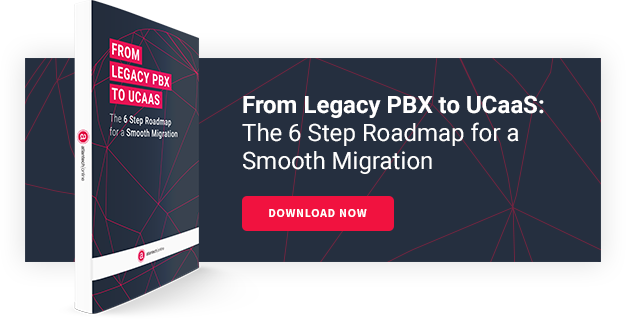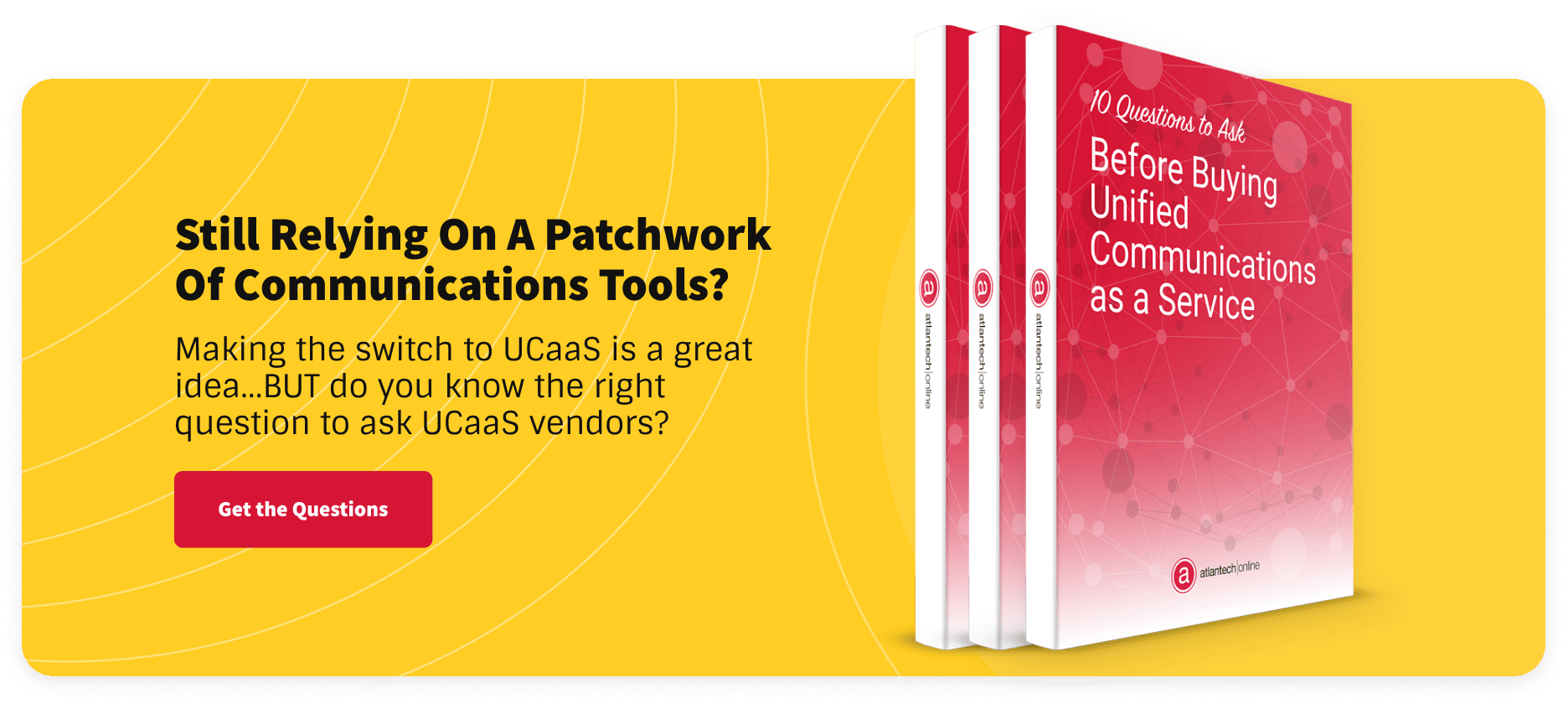Cloud PBX: 14 Expert Tips and FAQ's for Cloud-Based Phone Service

IP-based telephony services are quickly becoming the most common way that businesses communicate internally and with customers. A cloud-based private branch exchange (PBX) enables organizations of all sizes to perform voice calls over a data connection from on-site handsets or mobile devices, with a result of more cost-effective, reliable, and flexible communications for your company.
The core benefit of a cloud-based approach to PBX is the fact it allows your organization to treat voice communications as data; enabling you to move towards truly unified business communications, unlock the remarkable reliability of fiber-optic internet connectivity, and significantly reduce the expense of long-distance and international calling.
Today's organizations need flexibility. Their employees need the ability to work seamlessly from the office, home, or business travel destinations. Cloud-based PBX allows your organization to achieve critical mobility while giving you the ability to cost-effectively scale your phone lines up or down with near-immediacy.
Much like any other cloud-based technical service, navigating the cost and quality differences of PBX options can appear daunting to first-time users of the system. We've compiled a list to almost every cloud PBX FAQ to arm you with knowledge on picking the right technology, vendor, optimizing your cost savings, picking the right features and more!
Expert Tip #1: What is a PBX?
A private branch exchange is a form of telephone system technology that "switches" or routes calls over a number of external phone lines. While PBX systems have evolved significantly, this term can encompass both physical hardware and software-based systems that route calls through an internal "trunk" to connect with external phone lines locally, long-distance or internationally.
PBX systems for enterprise organizations generally include additional functionality, which may include:
- Automated Attendant
- Automated Call Distribution
- Voicemail
- Conference Calling
Expert Tip #2: What is a Cloud PBX?
Cloud PBX, or hosted PBX, is a software-based private branch exchange that provides call routing, distribution, voicemail, transferring, and related services for an organization. However, instead of hosting a software or hardware-based PBX on-premises, cloud PBX is managed and hosted at a vendor's facilities. Your PBX vendor maintains the servers and software, while your organization is able to perform voice communications through data connectivity to your vendor.
Expert Tip #3: What's the Difference Between Cloud and Traditional PBX?
The idea of "traditional," or on-premises PBX can vary. However, for the purpose of simplicity, we'll define this as any PBX system that is owned, operated, managed, and maintained by your organization. Depending on your organization's needs, you may be able to achieve some communications integrations, such as connectivity with your customer relationship management (CRM) tools. If you have internal staff with expertise in PBX management, your organization will be able to scale and modify your voice services quickly.
Hosted PBX is not located on-premises, and is instead a managed cloud service delivered by a vendor. This allows organizations to outsource the management, maintenance, and optimization of their voice communications needs, and minimizes the need for internal experts.
Expert Tip #4: Is Cloud PBX More Expensive than On-Premises?
In general, organizations are able to achieve significant cost efficiency with hosted cloud PBX vs. on-premises solutions. The average organization saves 70% with cloud PBX. These cost savings can be realized because cloud vendors are often able to provide lower initial startup costs, more affordable add-on features, better reliability guarantees, and the ability to scale your services on a per phone-line basis without having to pay for equipment upgrades.
There are few absolutes in technology, which means on rare occasions, some organizations may not save significantly through cloud PBX. Your cost/benefit analysis could be complicated if you have already invested in on-premises PBX equipment, very minimal need for scalability, staff members who are PBX experts, very little need for customization, and other unusual organizational attributes.
Expert Tip #5: How Much Does Cloud PBX Cost?
The cost of your organization's cloud PBX investment will vary primarily based on the size of your organization and number of phone lines. Additional factors that influence the cost of cloud-based PBX include:
- Add-on features
- Fiber-optic Internet installation
- Handset selections
- International calling needs
- Security and compliance requirements
- Bandwidth needs
Regardless of whether your organization is choosing on-premises or cloud PBX, these factors are primary cost drivers. While providing broad estimates is challenging, industry-wide studies have revealed that the "average" on-premises PBX implementation costs $15,000 or more; while cloud PBX implementations are 70% cheaper on average ($4,500).
Expert Tip #6: Does Cloud PBX Cost Affect Quality?
If your organization has begun to research your options for cloud PBX vendors, you may notice some variation in pricing. Cost does not always equal quality in the telecommunications realm, but a very low-cost provider could be delivering lower-quality service. Factors that indicate poor-quality PBX service could include a requirement to use public Internet connectivity, poor quality optimization, confusing setup processes, low uptime (reliability) guarantees, and a lack of industry experience.
Expert Tip #7: What Features Come with a Cloud PBX?
Vendor definitions of included and add-on features for cloud PBX can vary. In general, your organization can expect the standard call, transferring, and voicemail features and the ability to access included or "a la carte" services to improve your voice communications.
Some commonly selected enhanced features for cloud PBX include:
- Sophisticated call distribution
- Auto attendant and interactive voice recognition
- Conferencing features
- Dial by name directory
- Call recording
- Automated messaging alerts
- Group Ring
- Music on Hold
- Internal and external integrated messaging platforms
- Presence (active phone lines) detection and monitoring
- Single inbox for email, voicemail, and fax communications
Expert Tip #8: Sounds Great. But What are the CONS of Cloud PBX?
For many organizations, cloud-based PBX will win on a multi-factor comparison test. Using a vendor will offer advantages in expert system management, business continuity planning and reliability, and the ability to accurately project costs.
From a technology standpoint, there are few glaring risks associated with cloud PBX, especially compared to publicly-switched telephone networks (PTSN). Many of the most common sources of dissatisfaction come from inadequate vendor selection and vetting. Your organization may struggle if your vendor has outsourced customer service, limited support hours, limited disaster relief offerings, or offers limited business communications services.
Expert Tip #9: Is Cloud PBX Secure?
There is, unfortunately, no such thing as a technology that will offer your organization 100% protection from getting hacked. All kinds of phone systems - including plain old telephones and PBX -are vulnerable to security flaws depending on the implementation. Fortunately, PBX can offer significant security advantages if it is correctly implemented.
An expert vendor with an appropriate focus on client security and risk management should have knowledge on hosted PBX security. They will guide you through avoiding the most common cloud PBX security risks, including failing to change default passwords, updating vulnerabilities in your company network security, and installing fiber-optic internet. They should also provide encryption for additional protection.
Expert Tip #10: Can I Use Cloud PBX if My Internet Breaks?
If your company's Internet goes down briefly, an on-premises PBX system could lose connectivity. If you experience a major natural disaster or unusual inclement weather, some on-premises systems could be seriously compromised. Fortunately, many cloud PBX systems offer reliability advantages.
The most important feature to understand is mobile failover; if your organization loses data for any reason, calls will simply ring over to employee mobile phones. Upgrading from copper cable to fiber-based Internet can reduce your risk of data loss from weather, vandalism, hacking attempts, or accidents.
Expert Tip #11: Does PBX Compromise Employee Safety?
Your organization should take care to partner with a cloud vendor who offers a "ready-made e911" solution, which enables emergency personnel to pinpoint your location in case you need to place an emergency call via a handset phone, mobile device, or laptop computer. If your vendor meets or exceeds FCC requirements for e911 services, there are not any safety disadvantages to cloud PBX versus other forms of phone systems.
Expert Tip #12: Can I Use Cloud PBX With Other Kinds of Phones?
Many organizations find that PBX solutions meet or exceed their needs. Others need traditional phone lines for their elevator system, fax machines, or alarm systems. Your cloud-based PBX vendor should be able to support these use cases seamlessly.
While it is rare for organizations to maintain traditional phone lines for employees alongside PBX for a long period of time, hybrid phone systems are common during implementation. If your organization has intensive technical requirements, having two types of phone systems integrated could actually make your implementation process simpler.
Expert Tip #13: Can Cloud PBX Handle My Contact Center Needs?
Regardless of how large your organization's customer service team is and whether they are distributed at multiple sites, cloud PBX contact center features are likely one of the most affordable and seamless ways to support contact center communications. Cloud PBX vendors may offer add-on features that include:
- Multi-channel Communications: Integrated customer communication tools, including phone, email, chat, and even video chat.
- Reporting and Monitoring: Built-in customer service metrics for easier reporting.
- Interactive Voice Recognition (IVR): Intelligent, fully-automated phone menus for superior call routing.
- Smart Call Routing: Distribution of calls according to CSR training and call volume and other specific needs.
Expert Tip #14: When Should I Switch to Cloud PBX?
Your organization may not have any serious quality issues with your current phone systems, but making the immediate switch to cloud PBX can allow you to access benefits sooner versus later. You could begin saving money immediately while using sophisticated add-on features. Your employees will gain the ability to work from home - increasing satisfaction and productivity. For many companies, switching sooner has clear benefits.
Taking Your Voice Communications to the Cloud
Cloud PBX offers varied and significant benefits above on-premises solutions or traditional phones for the vast majority of organizations. With the right vendor and options, your organization can realize cost savings, experience efficiency gains, and attain major advantages in your security and risk management.
The FAQs outlined here are just the beginning of the possibilities waiting to be unlocked with cloud PBX and unified communication tools.
Organizations in the Mid-Atlantic and greater Washington D.C. area choose Atlantech for true unified communications, quality service, and decades of telecommunications expertise. To learn more, click here for a guide to phone system pricing or contact us today for customized, no-obligation quote.



